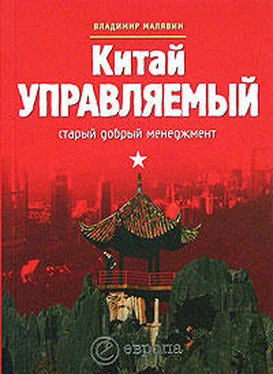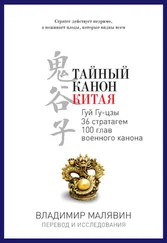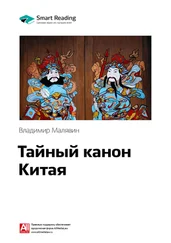G. Hofstede, М. Bond. The Confucian Connection: From Cultural Roots to Economic Growth, — Organizational Dynamics, vol. 16, # 4.
P.H. Tai. Measuring the Economic Impact of Confucianism: Empirical Evidence from a Survey — Conference on Confucianism and Economic Development in East Asia. — Taipei, 1989, p. 209.
G. Redding. The Spirit of Chinese Capitalism. — Berlin: de Gruyter, 1993, p. 67.
Wong Siu-lun. Chinese Enterpreneurs and Business Trust — Asian Business Networks. — Berlin: de Greyter, 1996, p. 16.
Цзэн Шицян. Чжунго гуаньли чжэсюэ (Философия китайского менеджмента), 3-е изд. — Тайбэй: Саньминь, 1981, с. 14.
S.G. Redding. Weak Organizations and Strong Lineages. Asian Business Networks, ed. by G. Hamilton. — Berlin: de Gryuter, 1996, p. 36.
Chen. Asian Management Systems. — London & New York: Routledge, 1995, p.86.
Ibidem.
М. Montagu-Pollock. All the right connections. Asian Business, 1991, # 1, p. 22.
G. Redding, ук. соч., pp. 150–153.
Там же, р. 160.
O. Laaksonen. Management in China during and after Mao. — Berlin: de Greyter, 1988, p. 300–301.
Там же, р. 163.
Fast Company, # 9, 1997, p. 152.
Ни Weizhong, C.L. Grove. Encountering the Chinese. — Yarmouth: Intercultural Press, 1991, p. 95.
Chan, W.T., C.Chang. Stepping out, The Making of Chinese Entrepreneurs. — Singapore: Prentice Halt 1994, p.50.
R.H. Holt Хи Weiman. Run Silent Run Deep — Cultural Influences on Organizations in the Far East Organization Studies, vol. 11,1991, # 4.
G. Redding, ор. сіt., р. 178.
Н. Луманн. Власть. — Москва: Праксис, 2001, с. 45.
Michael Backman. Asian Eclipse. — Singapore: John Wiley & Sons, 1999, p. 60
Гань Дэань и др. Чжунго цзяцзу цие яньцзю (Исследование китайских семейных предприятий). — Пекин: Чжунго шэхуэй кэсюэ, 2002, с. 288–289.
Да лан чао (Большой прилив), ред. Ху Вэйси. — Пекин: Дандай чжунго, 1994, с. 180.
G. Wong. Business Groups in a Dynamic Environment: Hong Kong 1979–1986. — Asian Business Networks, p. 102.
Подробнее см: T.Ch. Kiong. Centripetal Authority, Differentiated Networks: The Social Organization of Chinese Firms in Singapore. — Asian Business Networks, pp. 141–153.
Aihwa Ong, Flexible Citizenship. The Cultural Logics of Transnationality. — Duke University Press, 2002, p. 195–196.
AsianWeek, 08.02.1991.
Asian Business Wisdom, ed. by D.LC. Dayao. — Singapore: John Wiley & Sons, 2000, p. 164.
F.-J. Richter. Redesigning Asian Business. — London: Quorum Books, 2002, p. 87.
P. Kotler. New Asian Emperors, p. 112.
World Economic Development: 1979 and Beyond. — New York: Morrow Quill 1979, p. 128.
Wei Wou. Capitalism. A Chinese Version. — Ohio State University, 1992, pp. 26, 178.
Чэнь Шаофэн. Жушан: цзячжигуань юй сысян фанфа (Конфуцианский купец: ценностный взгляд и способ мышления). — Чжунго чжэсюэ юй исюэ, ред. Ван Во. — Пекин: Бэйцзин дасюэ, 2004, сс. 228, 236.
Far Eastern Economic Review, 02.07,1991, p. 46 ff.
М. Васктап, ук. соч., р. 10.
M.J. Levy. Confucianism and Modernization — Conference on Confucianism and Economic Development in East Asia, p. 564.
Wei Wou, op. cit., p. 32.
Chinese Culture and Industrial Management. Ed. By Pan Yunhe. — Singapore: World Scientific, 1998, p. 63.
Там же, p. 188.
Там же, p. 223.
К. Ohmae. The Mind of the Strategist. — New York: McGraw Hill 1982, p. 189 ff; Comparative Management ed. by R. Nath. — Cambridge, MA: Ballinger, 1988, p. 74.
Мin Сhеп. ор. cit., р. 187.
The Economist 11.02.1995, p. 63.
Н. Keyserling. The Travel Diary of Philosopher. — New York, 1925, Vol. 2, p. 219.
G. Von Bragt Kazuo Ichio, Ikujiro Nonaka. Enabling Knowledge Creation. — Oxford University Press, 200, p. 178–179.
Asian Business Wisdom, ed. by D.L.C. Dayao. — Singapore: John Wiley & Sons, 2000, p. 186.
P.F. Drucker. Managing in the Next Society. — New York: Truman Talley Books, 2002, pp. 165–167.
S. Lee, 5. Уоо. The К-Туре Management: A Driving Force of Korean Prosperity. — Management Industrial Review, 1987, Vol. 4, p. 71.
Цит. по: The Confucian World Observed, ed. by Tu Wei-ming et al. — Honolulu: The East-West Center. 1992, p. 77.
В.М. Gross. The Managing of Organizations: The Administrative Struggle. — Englewood Cliffs: Prentice-Hall 1968, p. 51.
См. В.В. Малявин. Китайская цивилизация. — Москва: АСТ, 2001, с. 340.
К. Малевич. Чёрный квадрат. — СПб: Азбука, 2000, с. 107.
А. Макинтайр. После добродетели. — Москва: Академический проект, 2000, с. 147.
S.E. Prokesh. Mastering Chaos at the high-tech frontier. — Harvard Business Review, 1993, № 6, p.142.
L. Boltanski Е. Chiapello. Le nouvel esprit du capitalisme. — Paris: Gallimard, 1999, p. 151.
R. Salmon. The Future of Management. — Oxford: BlackweLI, 1996, p. 200.
Одна из самых ранних и талантливых попыток переосмыслить современное духовное состояние человечества в свете символического миропонимания «предсовременности» принадлежит французскому культурологу Ж. Дюрану. См. J. Durand. Le nouvel esprit antropologique.
Читать дальше
Конец ознакомительного отрывка
Купить книгу










![Владимир Малявин - Китай управляемый [старый добрый менеджмент] [litres]](/books/406250/vladimir-malyavin-kitaj-upravlyaemyj-staryj-dobryj-thumb.webp)

